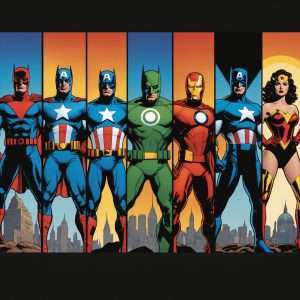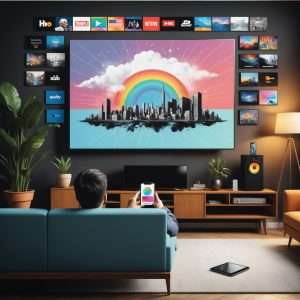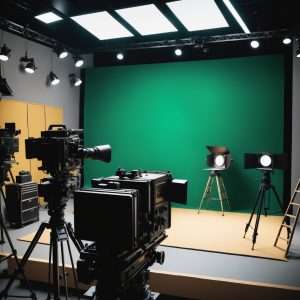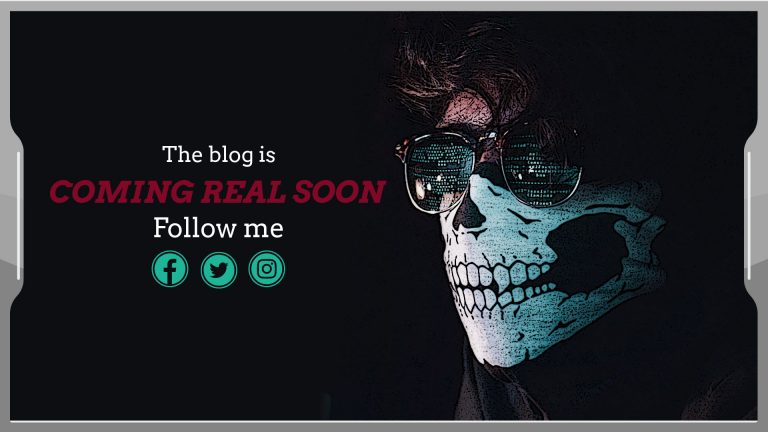Zombie Bunny is Reader-supported and may earn an affiliate commission through links on our site.
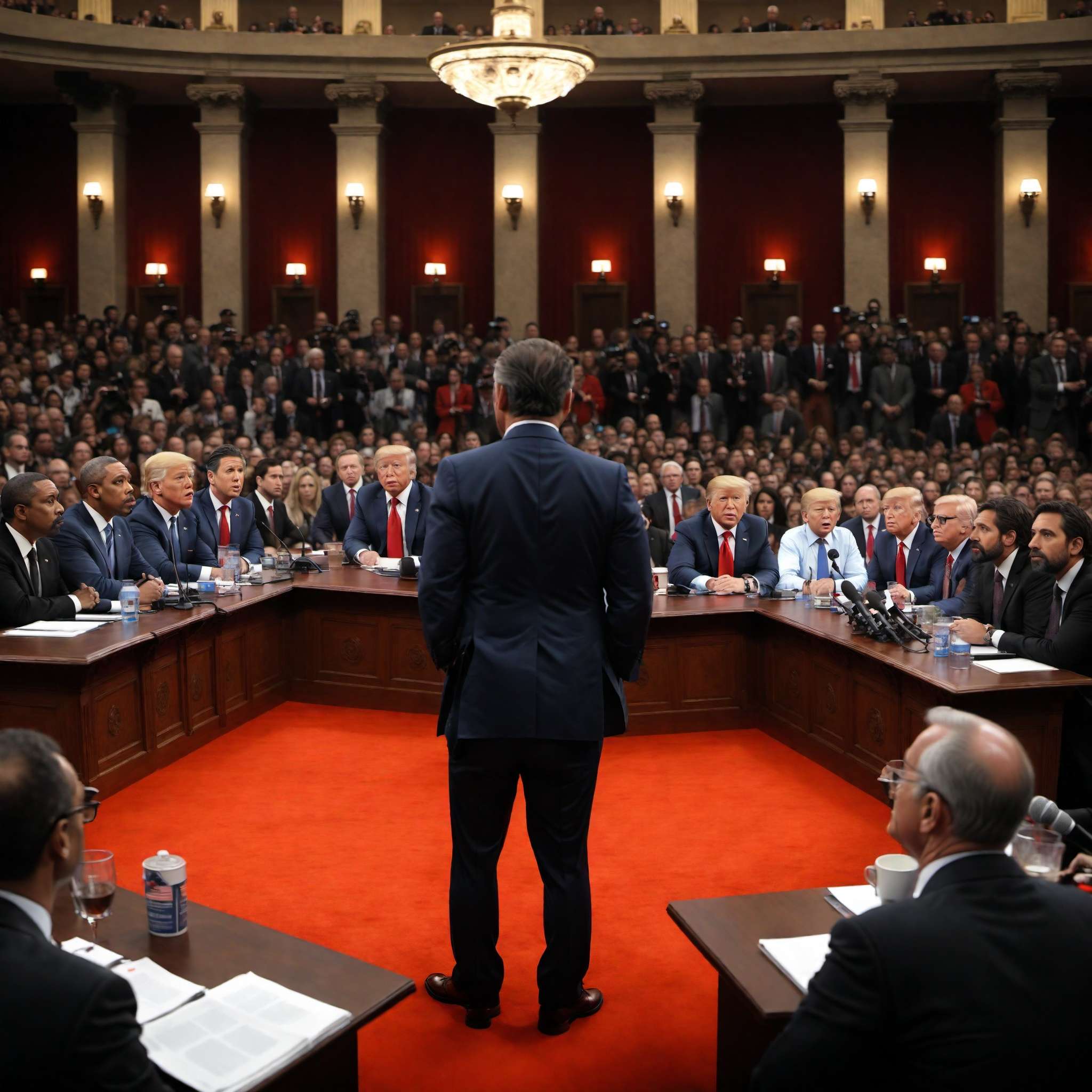
Star-Politicos: Is Mixing Celebrities and Politics a Ticking Time Bomb?
Explore the controversial interplay between stardom and politics! Are celebs on Capitol Hill a recipe for disaster? #celebpolitics #influence
Explore the intriguing intersection of stardom and politics in our latest blog — a deep dive into the global trend of ‘Star-Politicos.’ Discover how celebrities are leveraging their fame to influence political discourse and drive social change, and examine the potential impact on democratic participation. We’ll also discuss the ethical dilemmas this trend presents and question whether it’s a healthy evolution or a ticking time bomb for the political landscape. Join us as we navigate the complexities of this phenomenon, focusing on both its pros and cons, to foster a nuanced understanding of the role celebrities play in politics and its potential implications for the future.
Introduction: Star-Politicos A Rising Trend
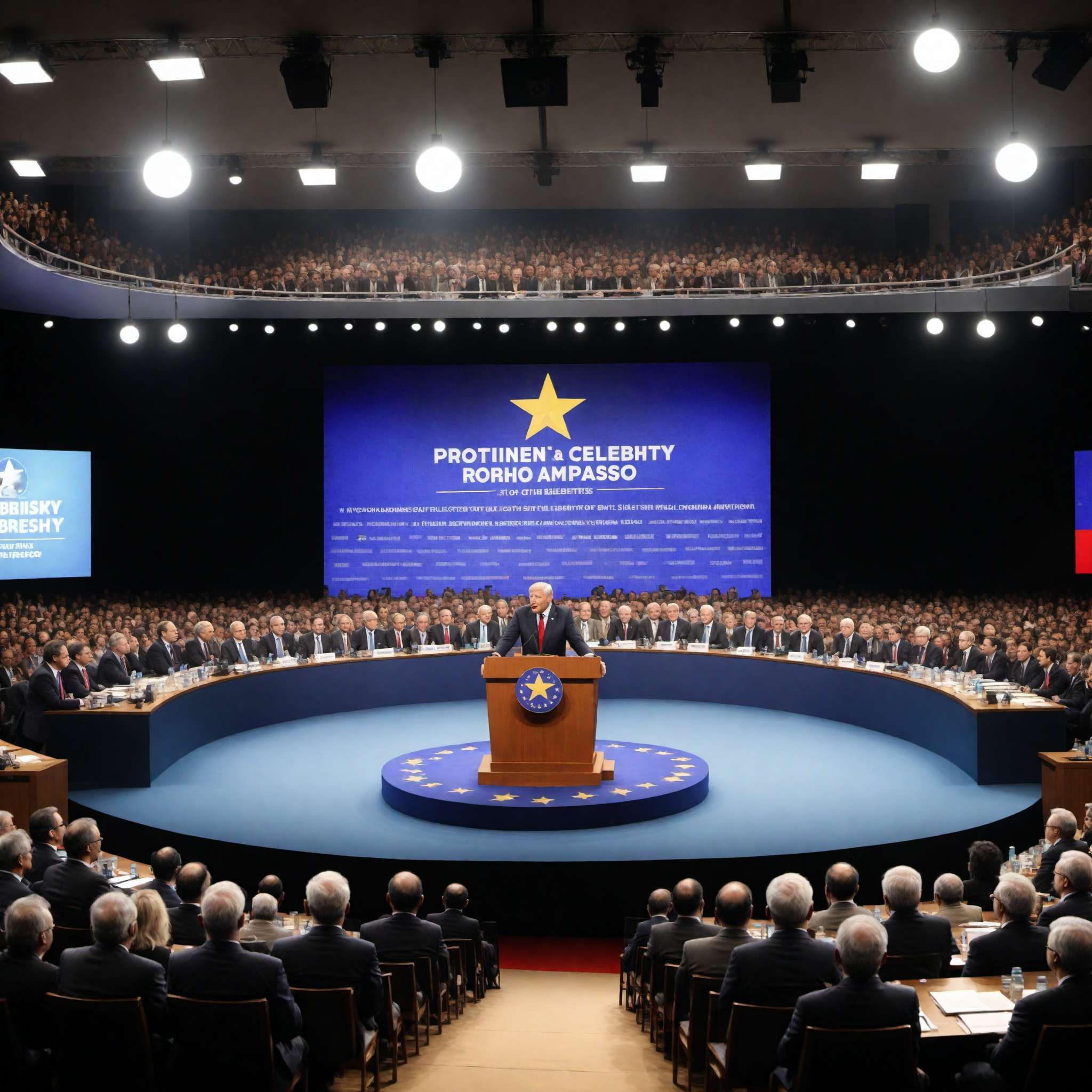
© Copyright , ZombieBunny.Org
Introduction to the topic
In recent years, the world has witnessed a remarkable trend – the intersection of stardom and politics. This phenomenon, often referred to as ‘Star-Politicos,’ is rapidly gaining momentum, blurring the lines between the glittering world of entertainment and the serious realm of politics. As celebrities ascend the political stage, their star power brings a unique dynamic to the political discourse. However, it is crucial to examine whether this trend is a healthy evolution of democratic participation or a ticking time bomb that could potentially disrupt the political landscape.
The fusion of fame and politics is not entirely new, but its frequency and impact have grown exponentially in the digital age. The global community has seen numerous celebrities, with their existing fan bases, transition from the silver screen and sports arenas to the political battlefield. Their influence extends beyond mere endorsements, with many even running for office. This blog will explore the intricacies of this trend, dissecting the pros and cons, delving into the ethical dilemmas it raises, and forecasting its potential future. Buckle up as we dive into the fascinating and controversial world of Star-Politicos.
The celebrities-politics nexus
The fusion of celebrities and politics, known as ‘Star-Politicos’, is more than a mere coincidence or fad. It’s a complex nexus that intertwines the world of glamour with governance, leveraging the power of fame for political influence. This connection is rooted in the celebrities’ widespread recognition and their ability to command public attention. Their fame, amplified by their artistic or athletic prowess, fuels their political ambition and gives them a unique advantage in the political arena.
The celebrity-politics nexus is not just about celebrities running for political office. It extends to them leveraging their star power to influence political discourse, drive social change, and shape public opinion. From endorsing political candidates to championing social causes, celebrities have become significant players in the political landscape. This trend has been further accelerated by the advent of social media, which has amplified their voice and reach. However, this intersection of fame and politics raises critical questions about the quality of political leadership, the role of celebrity culture in politics, and its impact on democracy. This blog seeks to unravel these complexities, shedding light on the phenomenon of Star-Politicos.
Purpose of the blog
The purpose of this blog is to delve into the phenomenon of Star-Politicos, analyzing its various facets and implications. It is designed to provide an in-depth understanding of the interplay between celebrities and politics, addressing the critical questions it raises about democracy, governance, and public accountability. The blog aims to scrutinize the impact of celebrity culture on political discourse, examining how it shapes public opinion and influences voter behavior.
Furthermore, this blog is committed to presenting a balanced perspective on the Star-Politicos phenomenon, exploring both its pros and cons. It will highlight the potential benefits of having celebrities in politics, such as their ability to attract attention to important issues and inspire civic engagement. On the flip side, it will also discuss the potential pitfalls, such as the risk of superficiality and the ethical dilemmas it may bring about. The blog will also feature case studies of prominent Star-Politicos and their impact on the political landscape, both positive and negative. By exploring this intriguing phenomenon from various angles, this blog aims to foster a more nuanced understanding of the role of celebrities in politics and its potential implications for the future.
‘Democrashowbiz’: The Intersection of Politics and Entertainment
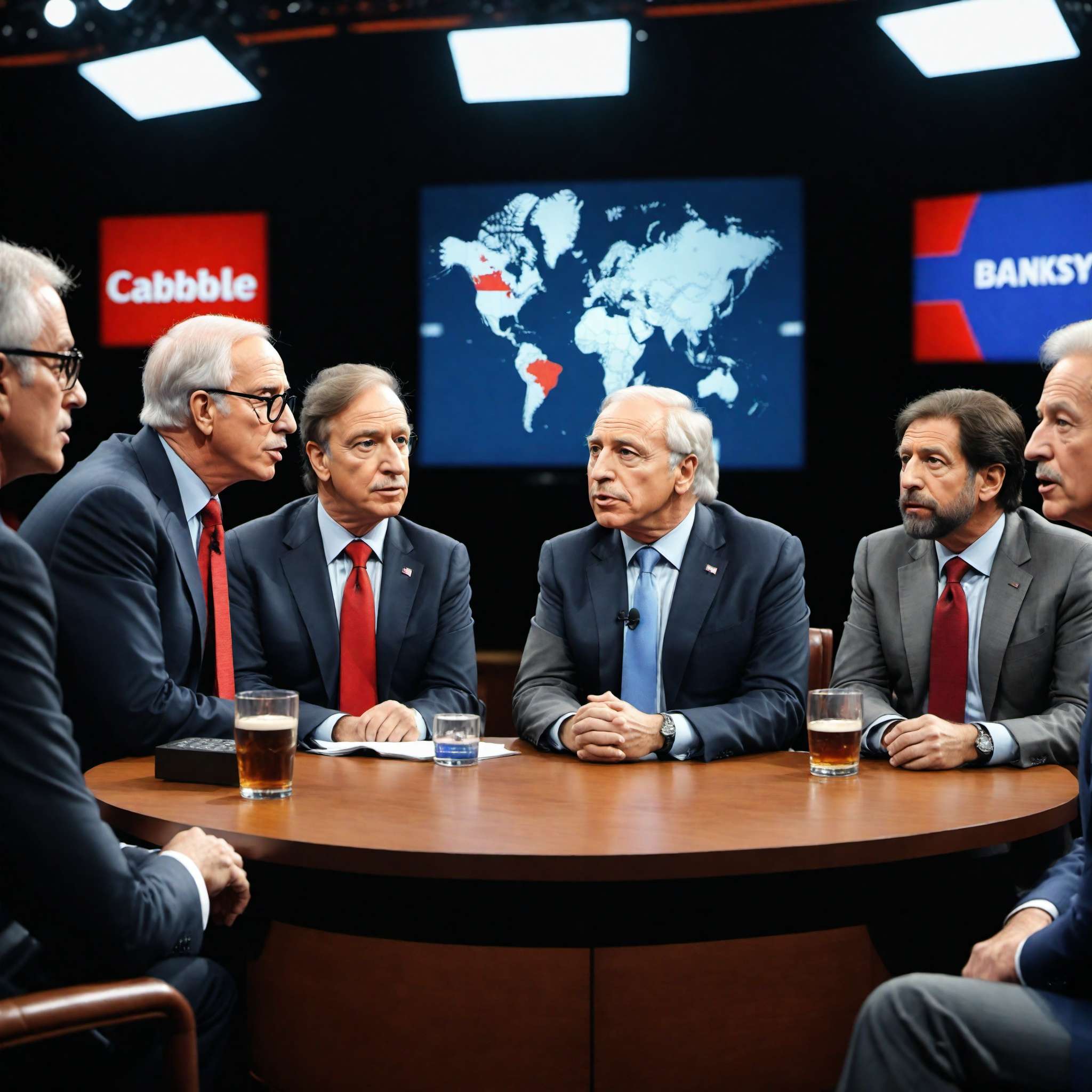
© Copyright , ZombieBunny.Org
Understanding ‘Democrashowbiz’
‘Democrashowbiz’ is an intriguing term that encapsulates the fusion of democracy and show business, two realms that were once distinct but are increasingly intertwined. This term highlights the growing trend of celebrities making their way into politics and the subsequent transformation of political discourse into a form of entertainment. ‘Democrashowbiz’ is the intersection where the glamour of the silver screen meets the high stakes of the political arena, creating a spectacle that is both intriguing and thought-provoking.
The emergence of ‘Democrashowbiz’ can be attributed to several factors, including the rise of mass media and the increasing need for politicians to gain public attention. The celebrity status of individuals allows them to command media attention and leverage their fan base for political gain. However, ‘Democrashowbiz’ is not just about celebrities entering politics. It also encompasses the phenomenon of politics being presented as a form of entertainment, with political debates and campaigns often resembling a reality show more than a serious discussion on governance and policy. This has brought about a paradigm shift in the way politics is perceived and consumed, making it more accessible and engaging, but also raising questions about its depth and substance. This blog will delve deeper into the ‘Democrashowbiz’ phenomenon, exploring its various dimensions and implications.
Politics as a form of entertainment
The transformation of politics into a form of entertainment is a defining characteristic of the ‘Democrashowbiz’ era. This shift can be traced back to the rise of mass media and the increasing importance of image and charisma in political success. In an age where attention is a valuable currency, politics has evolved into a spectacle, with political campaigns often resembling high-drama reality shows, complete with plot twists, conflict, and emotional appeal.
This shift towards entertainment-centric politics has made political discourse more accessible and engaging for the public. Political debates have become primetime entertainment, and political figures are scrutinized not just for their policy positions but also their charisma, personality, and ability to connect with the audience. Social media platforms have further amplified this trend, enabling politicians to directly engage with their audience and present their political journey in a narrative, storytelling format.
However, this shift also raises questions about the depth and substance of political discourse. While entertainment-centric politics may draw more public attention, it also risks overshadowing serious policy discussions and reducing complex political issues to soundbites and sensational headlines. As politics becomes more like entertainment, it’s crucial to ensure that the spectacle doesn’t overshadow the substance. This blog will explore this aspect further, dissecting the entertainment value in politics and its potential implications.
Role of celebrities in political discourse
Celebrities have emerged as influential players in the political arena, playing a pivotal role in shaping political discourse. Their involvement in politics extends beyond mere endorsements or running for office. They are increasingly leveraging their fame and public platform to influence political opinions, advocate for social causes, and even drive policy change. In the era of ‘Democrashowbiz,’ celebrities are not just entertainers; they are influencers, activists, and potential policymakers.
The role of celebrities in political discourse is multifaceted. They attract media attention and public interest, making politics more accessible and engaging for their fans. They often use their platform to raise awareness about important social and political issues, encouraging their fans to be more politically aware and engaged. They can influence public opinion, shape political narratives, and even sway electoral outcomes with their endorsements.
However, the role of celebrities in political discourse is not without controversy. Critics argue that celebrities lack the experience and expertise needed for political leadership, and their involvement in politics risks turning serious political discourse into a superficial spectacle. Furthermore, their personal popularity can overshadow the importance of policy issues, leading to personality-driven politics rather than issue-driven politics. This blog will delve deeper into these issues, exploring the evolving role of celebrities in political discourse, the potential benefits and pitfalls, and its implications for the future of politics.
Star-power in Politics: Influence and Impact
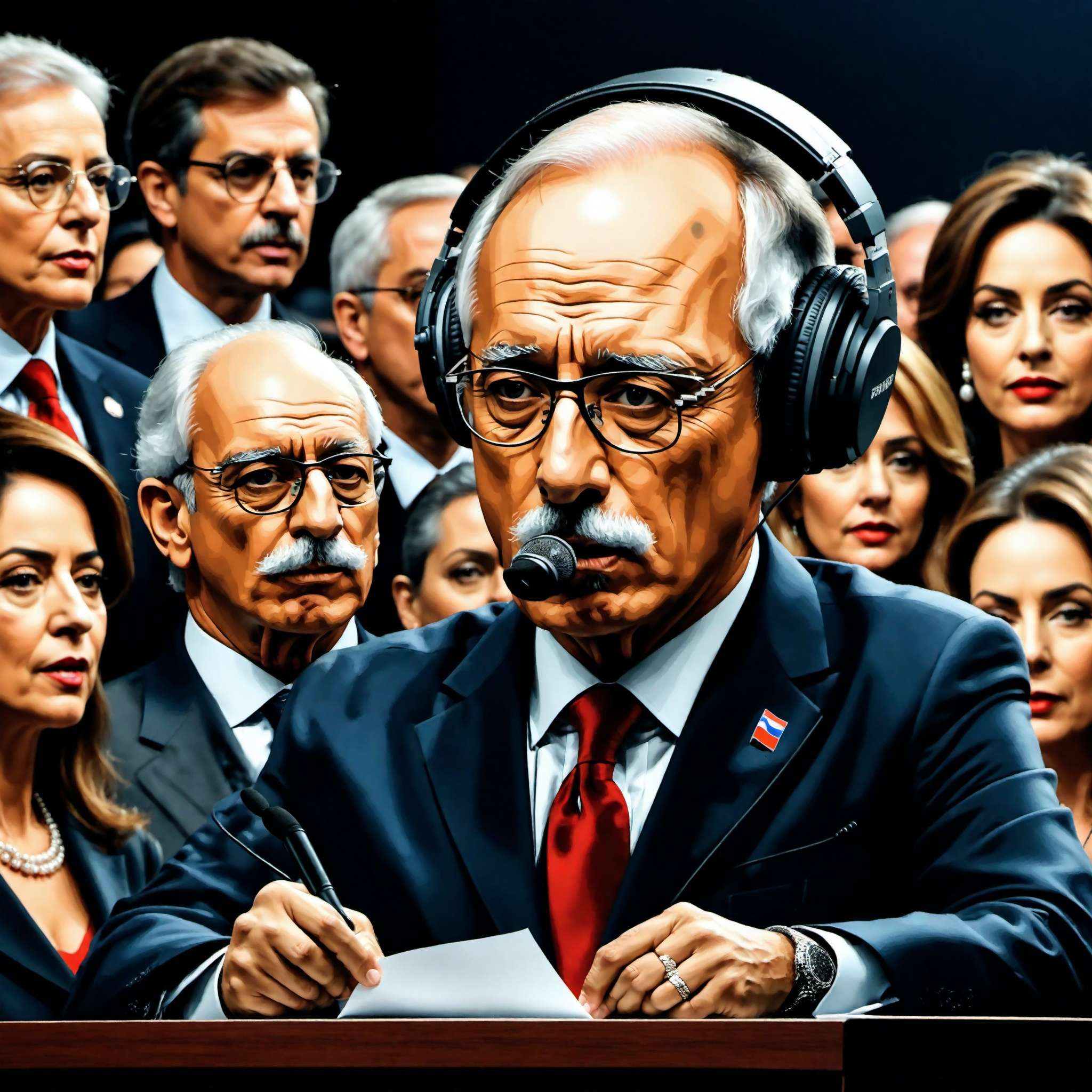
© Copyright , ZombieBunny.Org
Celebrity influence on public opinion
Celebrities have long held sway over public opinion, and their influence extends well into the political realm. They command a wide audience, and their public statements can significantly impact the way their fans perceive political issues. This influence can be leveraged for both positive and negative outcomes, making the role of celebrities in politics a topic of keen interest.
In the positive sense, celebrities can use their platform to raise awareness about important social and political issues. Their endorsements can shine a spotlight on lesser-known candidates or causes, lending them credibility and visibility. Moreover, their ability to connect with the public on an emotional level can inspire civic engagement, encouraging their fans to vote, donate, or otherwise get involved in political activities.
However, the influence of celebrities on public opinion also has potential downsides. Their personal popularity can overshadow substantive policy debates, leading to personality-driven politics. Furthermore, their influence can be unduly persuasive, swaying public opinion based on charm and charisma rather than facts and reasoned argument. Lastly, their celebrity status may lead to an overemphasis on their views, potentially marginalizing the voices of experts in the field. As we explore the Star-Politicos phenomenon, it’s critical to consider these potential pitfalls and the impact of celebrity influence on democratic discourse.
Impact of celebrity endorsement in politics
Celebrity endorsements have become a powerful tool in the political landscape, with significant potential to influence election outcomes and public policy. When a popular celebrity endorses a candidate or a cause, it can instantly draw media attention and public interest, providing a substantial boost to the endorsed party.
The impact of celebrity endorsements in politics can be multi-faceted. On one hand, they can increase visibility for lesser-known candidates or causes, attract donations, and mobilize supporters. They can also help humanize politicians, making them more relatable to the public through association with beloved figures from the entertainment world. Moreover, celebrities can influence public opinion by associating their own positive image and values with the endorsed party.
However, celebrity endorsements also have potential drawbacks. While they can attract attention, they do not guarantee voter support and can sometimes backfire if the public perceives the endorsement as insincere or opportunistic. The celebrity’s image can also overshadow the endorsed party’s policy platform, leading to a focus on personality over substance. Moreover, celebrities’ personal controversies can negatively impact the image of the endorsed party.
As we delve into the Star-Politicos phenomenon, it’s important to critically examine the impact of celebrity endorsements in politics, considering both their potential benefits and pitfalls. This blog will provide a comprehensive analysis of this aspect, contributing to a nuanced understanding of the role of celebrities in politics.
Famous examples of ‘Star-Politicos’
The Star-Politicos phenomenon is not just a theoretical concept; it’s a reality that has manifested in various forms across the globe. One of the most famous examples is Ronald Reagan, a former Hollywood actor who went on to become the President of the United States. Another prominent example is Arnold Schwarzenegger, known for his iconic role as ‘The Terminator,’ who served as the Governor of California.
In the music industry, we have seen figures like Kanye West and Wyclef Jean attempt to transition into politics by running for office. Although their bids were not successful, their campaigns garnered significant media attention and public interest, underscoring the potential impact of celebrity involvement in politics.
In other parts of the world, we have seen similar trends. In the Philippines, actor Joseph Estrada served as the President, while in India, numerous film and sports personalities have successfully transitioned into politics. These examples highlight the global nature of the Star-Politicos phenomenon and its potential to reshape the political landscape.
However, these examples also bring to light the complexities and controversies associated with the Star-Politicos phenomenon. While some celebrities have leveraged their fame to drive positive change, others have faced criticism for their lack of political experience or policy expertise. As we explore the Star-Politicos phenomenon, it’s important to critically examine these examples, considering both their successes and failures.
The ‘Celebrity Politician’: Pros and Cons
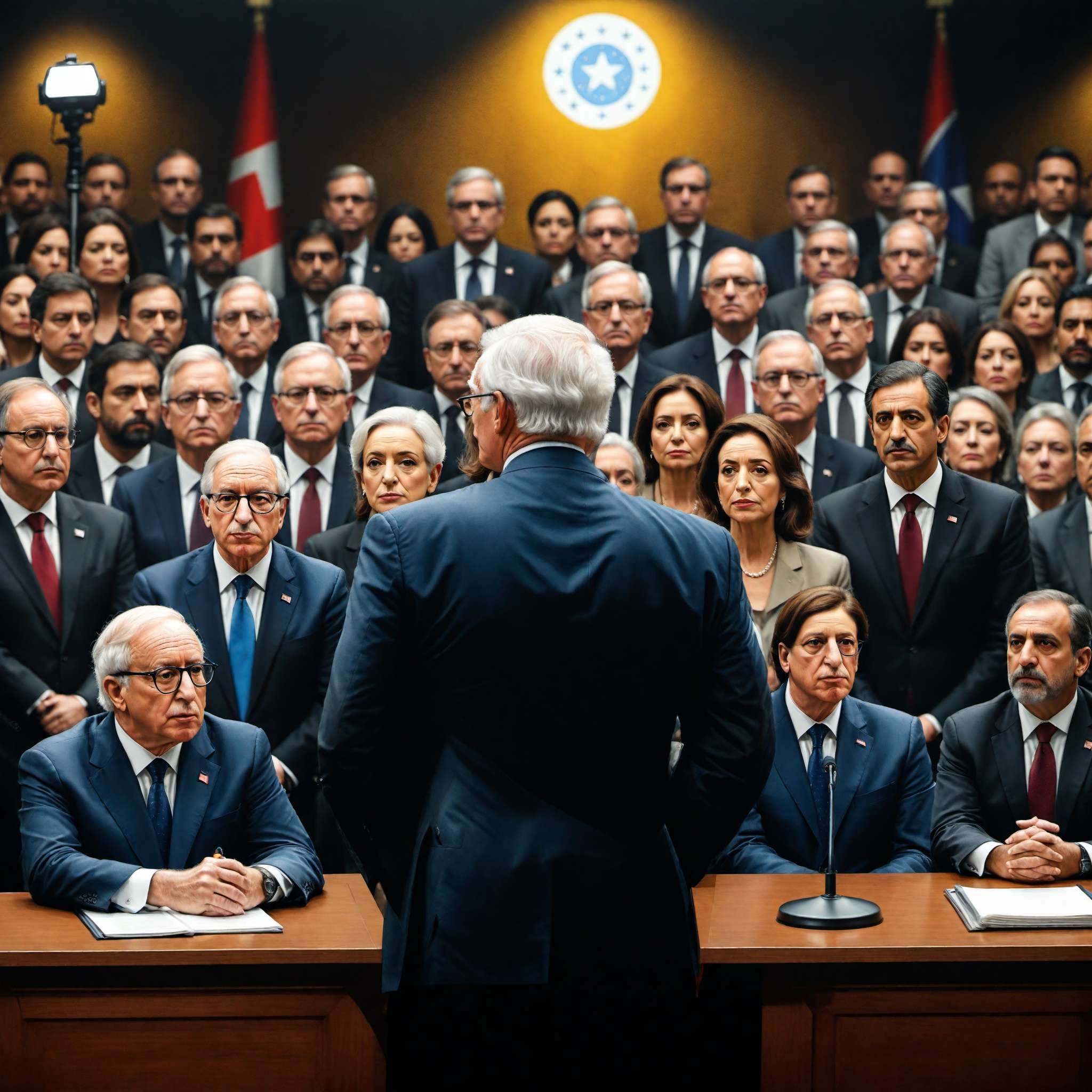
© Copyright , ZombieBunny.Org
Pros of having celebrities in politics
The involvement of celebrities in politics brings several potential benefits. One of the main advantages is the ability of celebrities to attract attention to political issues. Their fame and popularity can put the spotlight on important social causes, raise public awareness, and inspire civic engagement. Celebrities can leverage their platform to mobilize support, attract donations, and influence public opinion.
Another advantage of having celebrities in politics is their ability to humanize political discourse. Celebrities often have a personal connection with their fans, and this can help make politics more relatable and accessible to the public. They can use their storytelling skills to present political issues in a compelling manner, engaging the public’s interest and emotion.
Furthermore, celebrities often bring a fresh perspective and innovative ideas to the political arena. Their diverse backgrounds and experiences can contribute to a more inclusive and dynamic political discourse. Their non-traditional approach to politics can challenge the status quo and inspire change.
However, the involvement of celebrities in politics is not without its challenges and controversies, which this blog will explore in the following sections. Despite the potential benefits, it’s crucial to critically examine the role of celebrities in politics, ensuring that the focus remains on policy and public service rather than personality and popularity.
Cons of having celebrities in politics
While there are potential benefits to having celebrities in politics, there are also significant downsides that need to be considered. One of the main criticisms is the lack of political experience and expertise among celebrities. Politics requires a deep understanding of complex policy issues, administrative acumen, and diplomatic skills. Celebrities, despite their fame and popularity, may lack these essential qualifications, leading to ineffective governance.
Another concern is the risk of personality-driven politics. Celebrities often command public attention because of their charisma and personal appeal rather than their policy positions. This can shift the focus away from substantive policy debates, leading to a superficial and sensationalized political discourse. It can also lead to an overemphasis on image and popularity at the expense of policy and public service.
Furthermore, celebrities’ personal lives often come under intense public scrutiny, and any controversies or scandals can have a detrimental impact on their political careers and the public’s trust in them. There is also the risk of celebrities using politics as a platform to further their own fame and personal interests, rather than serving the public good.
Lastly, the influence of celebrities in politics can unduly sway public opinion, leading to uninformed voting decisions based on popularity rather than informed judgement. These potential pitfalls underscore the need for critical scrutiny of the Star-Politicos phenomenon.
The role of Media
The role of media in the Star-Politicos phenomenon cannot be overstated. Media serves as the bridge between celebrities and the public, shaping perceptions and influencing public opinion. It plays a crucial role in amplifying the voices of celebrities, broadcasting their political views, and covering their campaigns when they run for office.
Through extensive coverage and sensational headlines, media can attract public attention to celebrity politicians and their policy positions. It can help humanize celebrities, presenting them as relatable figures rather than distant stars. This can make politics more accessible and engaging for the public, encouraging civic engagement and political participation.
However, the role of media also comes with significant responsibilities. Media has the duty to critically examine the qualifications and policy positions of celebrity politicians, ensuring that the public receives accurate and balanced information. It should avoid sensationalism and personality-driven coverage, focusing instead on substantive policy debates and issues.
Furthermore, media has a crucial role in holding celebrity politicians accountable. It should scrutinize their actions and decisions, question their qualifications and policy positions, and highlight any potential conflicts of interest. As we continue to navigate the Star-Politicos phenomenon, the role of media will be instrumental in ensuring that the focus remains on policy and public service rather than personality and popularity.
Celebrity Political Activism: Not Just a Face
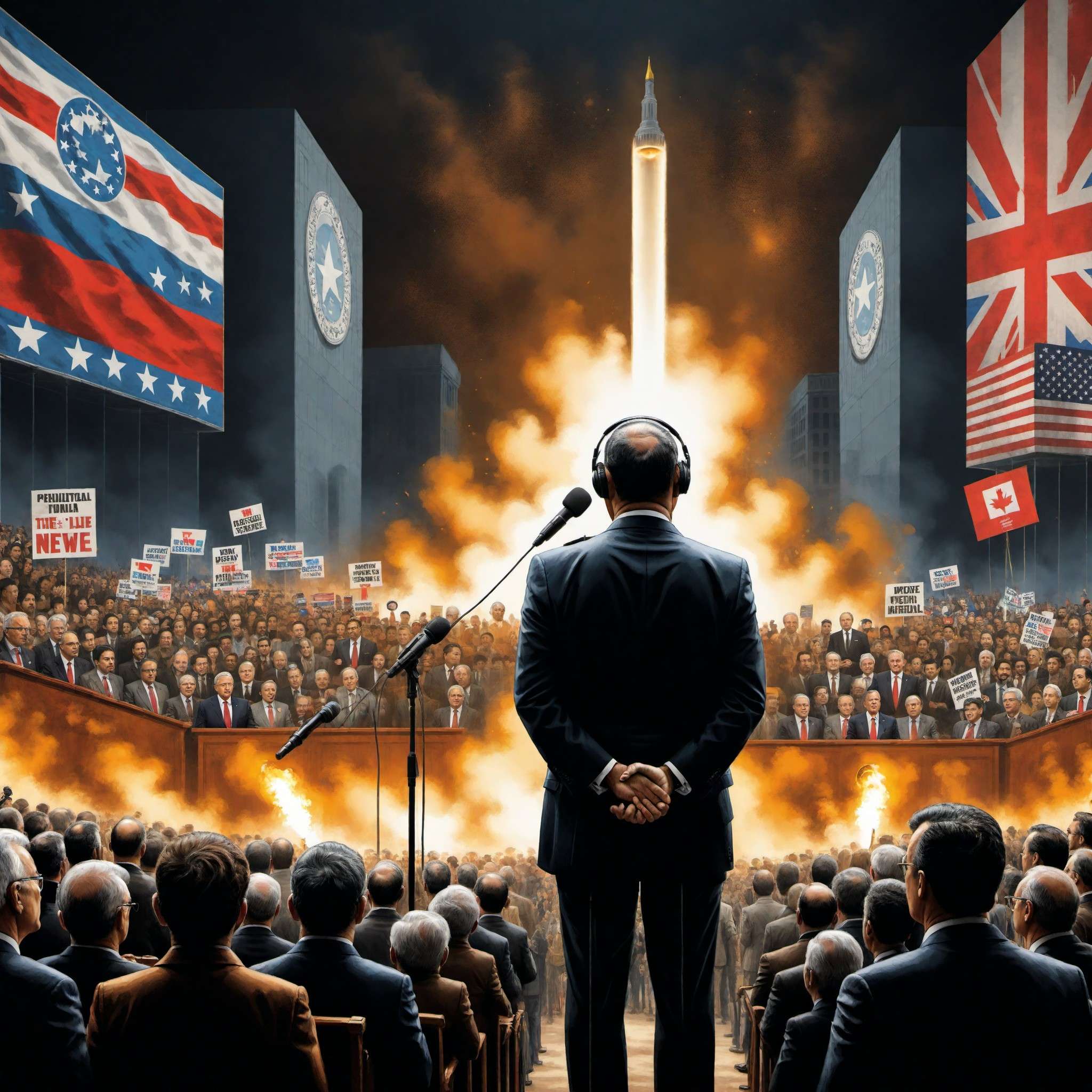
© Copyright , ZombieBunny.Org
Celebrity political activism
Celebrity political activism is a significant aspect of the Star-Politicos phenomenon. Many celebrities are leveraging their fame and influence to advocate for social and political causes, driving public attention and sparking discussions on important issues. This form of activism is not just about endorsing political candidates or running for office; it’s about using their platform to drive change and make a difference.
Celebrities can shine a spotlight on issues that may be overlooked or underreported, bringing them to the forefront of public consciousness. They can mobilize support, raise funds, and influence policy decisions. Their public statements and actions can inspire their fans to get involved, fostering civic engagement and political participation.
However, celebrity political activism also raises certain ethical and practical questions. Can celebrities truly understand and represent the complexities of the issues they champion? Are they equipped to navigate the political landscape and effect substantive change? Or are they merely lending their face to a cause, without a deep understanding or commitment?
Furthermore, celebrity activism can sometimes overshadow the voices of grassroots activists and experts in the field. It’s crucial to find a balance, ensuring that celebrities use their platform to amplify these voices, rather than drown them out. This blog will delve deeper into these issues, exploring the role of celebrities as political activists and its potential implications for the future of politics.
Impact on society
The impact of the Star-Politicos phenomenon on society is profound and multidimensional. On a positive note, the involvement of celebrities in politics can foster greater public interest and engagement in political discourse. Celebrities can bring attention to important social and political issues, inspiring their fans to become more politically aware and active. This can lead to increased voter turnout, more informed voting decisions, and a more vibrant and inclusive democracy.
Furthermore, celebrities can use their influence to drive social change, advocating for social justice, environmental sustainability, and other important causes. Their activism can inspire their fans to get involved in these causes, fostering a sense of civic responsibility and social consciousness.
However, the Star-Politicos phenomenon also has potential downsides. The focus on celebrity status can overshadow the importance of policy issues and expertise, leading to a superficial and personality-driven political discourse. This can undermine the quality of political leadership and the public’s trust in political institutions.
Furthermore, the influence of celebrities can sway public opinion and voting decisions based on popularity rather than informed judgment, potentially undermining the democratic process. As we continue to navigate the Star-Politicos phenomenon, it’s crucial to critically examine its impact on society, ensuring that it contributes to a more inclusive and substantive political discourse, rather than undermining it.
Famous examples of celebrity activist
There are numerous examples of celebrities who have used their platforms to advocate for political and social causes. One of the most prominent examples is U2’s Bono, who has been actively involved in various humanitarian efforts, particularly in Africa. His activism has focused on issues like poverty, disease, and debt relief, and he has used his influence to raise awareness and mobilize support for these causes.
Another famous celebrity activist is Angelina Jolie, who has been a United Nations Goodwill Ambassador and a Special Envoy for the UN Refugee Agency. Jolie has advocated for refugees’ rights and humanitarian aid, using her platform to shed light on these issues and influence policy decisions.
In the realm of environmental activism, Leonardo DiCaprio stands out as a vocal advocate for climate change action. Through his foundation, he has funded numerous environmental projects and used his influence to raise awareness about climate change and promote sustainable practices.
However, while these celebrities have made significant contributions to their chosen causes, their activism has also faced criticism. Critics argue that celebrity activism can be superficial, driven more by image-building than genuine commitment to the cause. Furthermore, celebrities’ high-profile status can sometimes overshadow the voices of grassroots activists and experts in the field. As we explore celebrity political activism, it’s important to critically examine these examples and their impact on political and social discourse.
The Celebrity Effect on Voter Behaviour
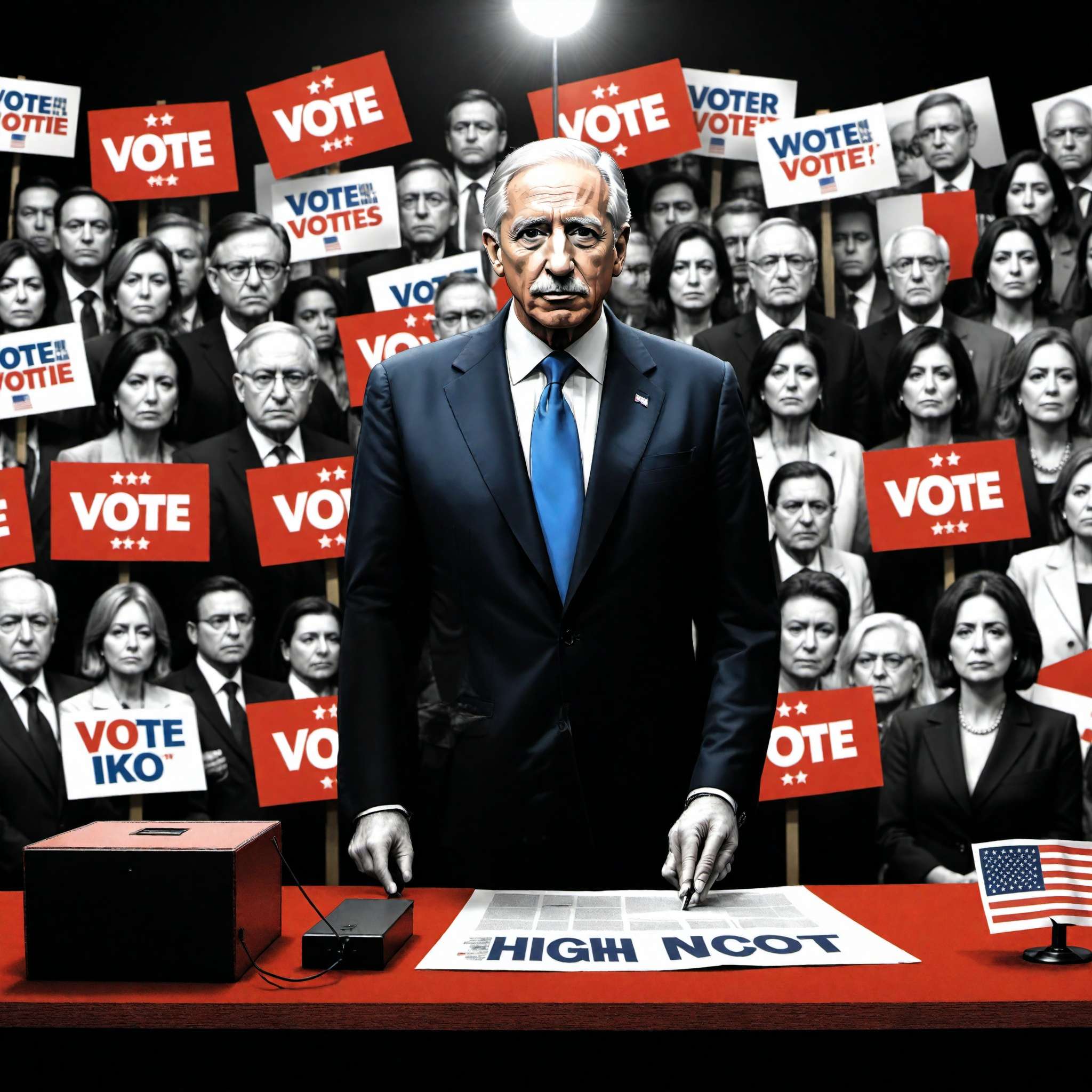
© Copyright , ZombieBunny.Org
Influence of celebrities on voter behavior
The influence of celebrities on voter behavior is a fascinating aspect of the Star-Politicos phenomenon. Celebrities command a wide audience and their political endorsements or candidacies can significantly impact how their fans perceive and react to political issues. This influence is especially potent in the era of social media, where celebrities can directly engage with their fans and present their political views in a compelling and relatable manner.
Research has shown that celebrity endorsements can sway voter preferences, particularly among younger and less politically engaged voters. Celebrities can humanize politicians, making them more relatable to the public and thus increasing their appeal. They can also influence public opinion by associating their own positive image and values with the endorsed party.
However, the influence of celebrities on voter behavior also raises critical questions about the democratic process. While celebrities can attract attention and spark interest in politics, their influence can also lead to uninformed voting decisions based on popularity rather than policy. Furthermore, their endorsements can unduly sway public opinion, potentially undermining the democratic principle of informed and independent decision-making.
As we delve into the Star-Politicos phenomenon, it’s crucial to critically examine the influence of celebrities on voter behavior, considering both its potential benefits and pitfalls. This blog will provide a comprehensive analysis of this aspect, contributing to a nuanced understanding of the role of celebrities in politics and its implications for democratic governance.
Celebrity effect versus traditional political campaigning
The advent of the Star-Politicos phenomenon has reshaped the landscape of political campaigning. Traditional political campaigning, with its focus on policy debates, grassroots outreach, and party platforms, is increasingly intersecting with the celebrity effect, where popularity, charisma, and media appeal come into play.
The celebrity effect brings a new dimension to political campaigning. Celebrities can command media attention and public interest, making their campaigns highly visible and engaging. Their personal connection with their fans can make politics more relatable and accessible, encouraging civic engagement and political participation. Furthermore, celebrities can leverage their storytelling skills to present political issues in a compelling manner, engaging the public’s interest and emotion.
However, while the celebrity effect can enhance the appeal and reach of political campaigns, it also presents challenges. The emphasis on celebrity status can overshadow the importance of policy issues and expertise. It can shift the focus away from substantive policy debates, leading to a more superficial and personality-driven political discourse. Furthermore, the celebrity effect can lead to an overemphasis on image and popularity at the expense of policy and public service.
As we continue to explore the Star-Politicos phenomenon, it’s crucial to critically examine the interplay between the celebrity effect and traditional political campaigning, considering both its potential benefits and pitfalls. This blog will provide a comprehensive analysis of this aspect, contributing to a nuanced understanding of the evolving landscape of political campaigning.
Case studies of celebrity effect
Several case studies illustrate the impact of the celebrity effect on politics. A notable example is the 2003 California gubernatorial recall election, where actor Arnold Schwarzenegger leveraged his celebrity status to win the governor’s seat. His campaign capitalized on his fame, charisma, and the media attention he commanded, demonstrating the power of the celebrity effect in swaying voter behavior.
Another case study is the 2016 U.S. Presidential election, where Donald Trump, a businessman and reality TV star, won the presidency. His campaign was marked by a high degree of media coverage and public interest, fueled by his celebrity status. Despite a lack of traditional political experience, Trump’s charisma, media savvy, and populist appeal resonated with a significant portion of the electorate, underscoring the potential influence of the celebrity effect.
However, while these case studies highlight the potential impact of the celebrity effect, they also underscore its potential pitfalls. Both Schwarzenegger and Trump faced criticism for their lack of political experience and policy expertise, and their tenures were marked by controversy and polarization. These case studies underscore the need for a critical examination of the celebrity effect, considering both its potential benefits and drawbacks. As we delve further into the Star-Politicos phenomenon, this blog will provide a nuanced analysis of these and other case studies, contributing to a deeper understanding of the role of celebrities in politics.
The Ethical Dilemmas: Star-Politicos Under The Lens
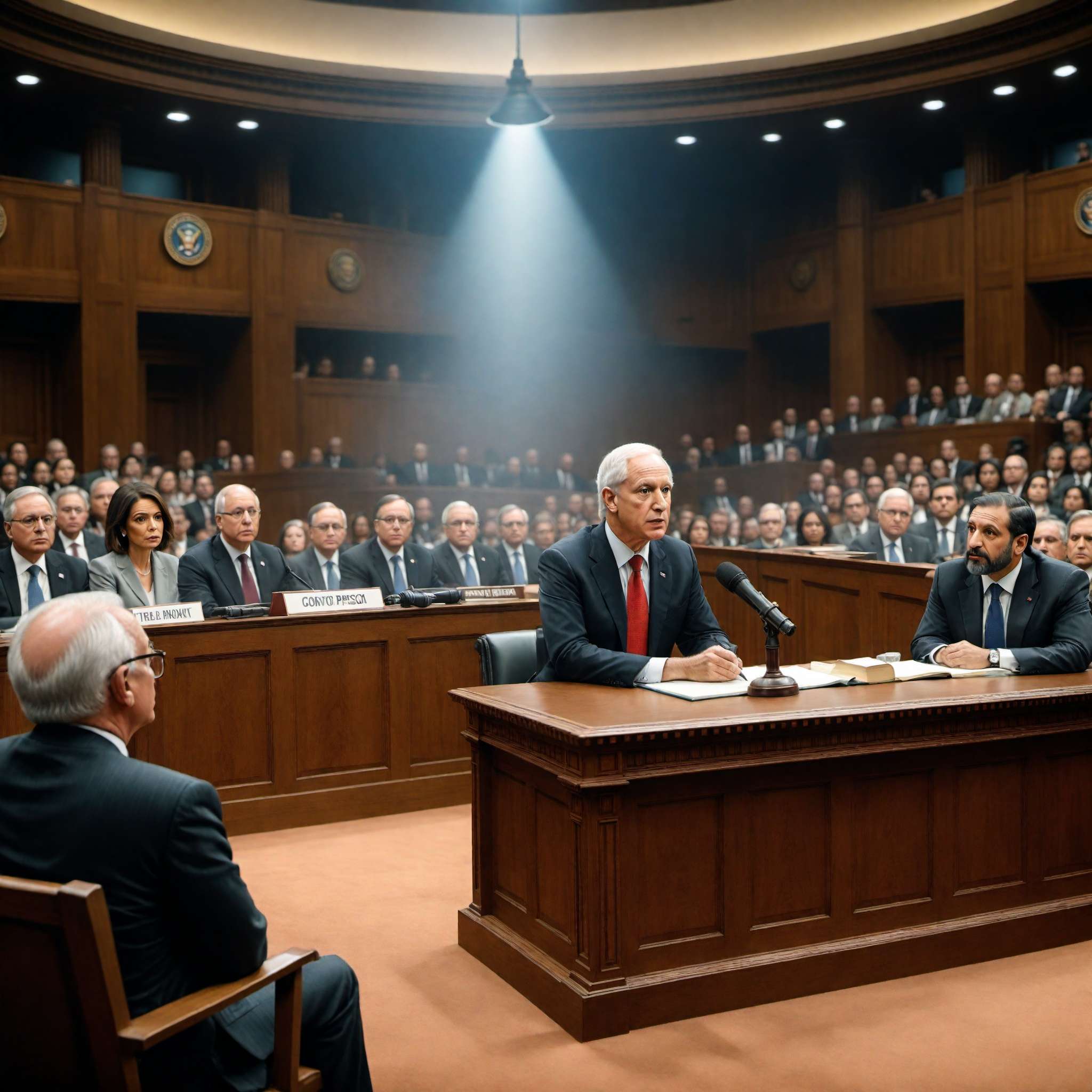
© Copyright , ZombieBunny.Org
Ethical dilemmas in celebrity politics
The Star-Politicos phenomenon raises several ethical dilemmas that warrant critical examination. One key concern is the potential for celebrities to leverage their fame and popularity for political gain, without the necessary experience or expertise. This can lead to ineffective governance and a focus on image over substance, raising questions about the integrity of the political process.
Another ethical dilemma is the potential for celebrities to unduly influence public opinion and voter behavior. While celebrities have a right to express their political views, their influence can sway public opinion based on popularity rather than informed judgement. This can undermine the democratic principle of informed and independent decision-making, leading to uninformed voting decisions and a superficial political discourse.
Furthermore, celebrities’ involvement in politics can lead to conflicts of interest. Celebrities often have extensive business interests and personal brands to protect, and their political decisions could be influenced by these considerations, rather than the public good.
Lastly, the intense media scrutiny faced by celebrities can also raise ethical questions. While public figures should be held accountable for their actions, the intense focus on celebrities’ personal lives can overshadow substantive policy debates and invade their privacy. As we navigate the Star-Politicos phenomenon, it’s crucial to consider these ethical dilemmas and their implications for democratic governance and the integrity of the political process.
Public accountability of celebrity politicians
Public accountability is a cornerstone of democratic governance, and this principle applies equally to celebrity politicians. Celebrities who enter the political arena must be prepared to be held accountable for their actions and decisions, just like any other public servant. This includes being transparent about their policy positions, financial dealings, and any potential conflicts of interest.
The media plays a crucial role in holding celebrity politicians accountable. Journalists have a duty to critically examine the qualifications and policy positions of celebrity politicians, ensuring that the public receives accurate and balanced information. They should also scrutinize the actions and decisions of celebrity politicians, highlighting any potential ethical issues or conflicts of interest.
However, public accountability also presents unique challenges in the context of celebrity politics. The intense media scrutiny faced by celebrities can sometimes focus more on their personal lives and image, rather than their policy positions and public service record. This can lead to a sensationalized and superficial political discourse, detracting from the substantive issues at hand.
Moreover, the popularity and influence of celebrities can sometimes shield them from criticism and accountability, swaying public opinion in their favor despite potential shortcomings or controversies. As we delve into the Star-Politicos phenomenon, it’s crucial to consider these challenges and ensure that the principles of public accountability are upheld.
Case studies of ethical controversies
Several case studies highlight the ethical controversies associated with the Star-Politicos phenomenon. One notable example is Donald Trump, a businessman and reality TV star who became the 45th President of the United States. Trump’s presidency was marked by numerous ethical controversies, including conflicts of interest related to his business dealings, and his use of his celebrity status to promote his personal brand.
Another case study is Silvio Berlusconi, a media tycoon who served as the Prime Minister of Italy. Berlusconi faced numerous ethical controversies during his tenure, including allegations of corruption, conflicts of interest related to his media empire, and misuse of his celebrity status for political gain. These controversies underscore the potential risks and ethical dilemmas associated with the Star-Politicos phenomenon.
However, it’s important to note that not all celebrity politicians are embroiled in ethical controversies. There are also examples of celebrities who have successfully transitioned into politics, maintaining a high degree of integrity and public service. These include Arnold Schwarzenegger, a former actor who served as the Governor of California, and Glenda Jackson, a former actress who served as a Member of Parliament in the UK.
These case studies highlight the need for rigorous ethical scrutiny and public accountability in the realm of celebrity politics. As we continue to explore the Star-Politicos phenomenon, it’s crucial to consider these ethical dilemmas and their implications for democratic governance and the integrity of the political process.
From Silver Screen to Political Arena: Successful Transitions
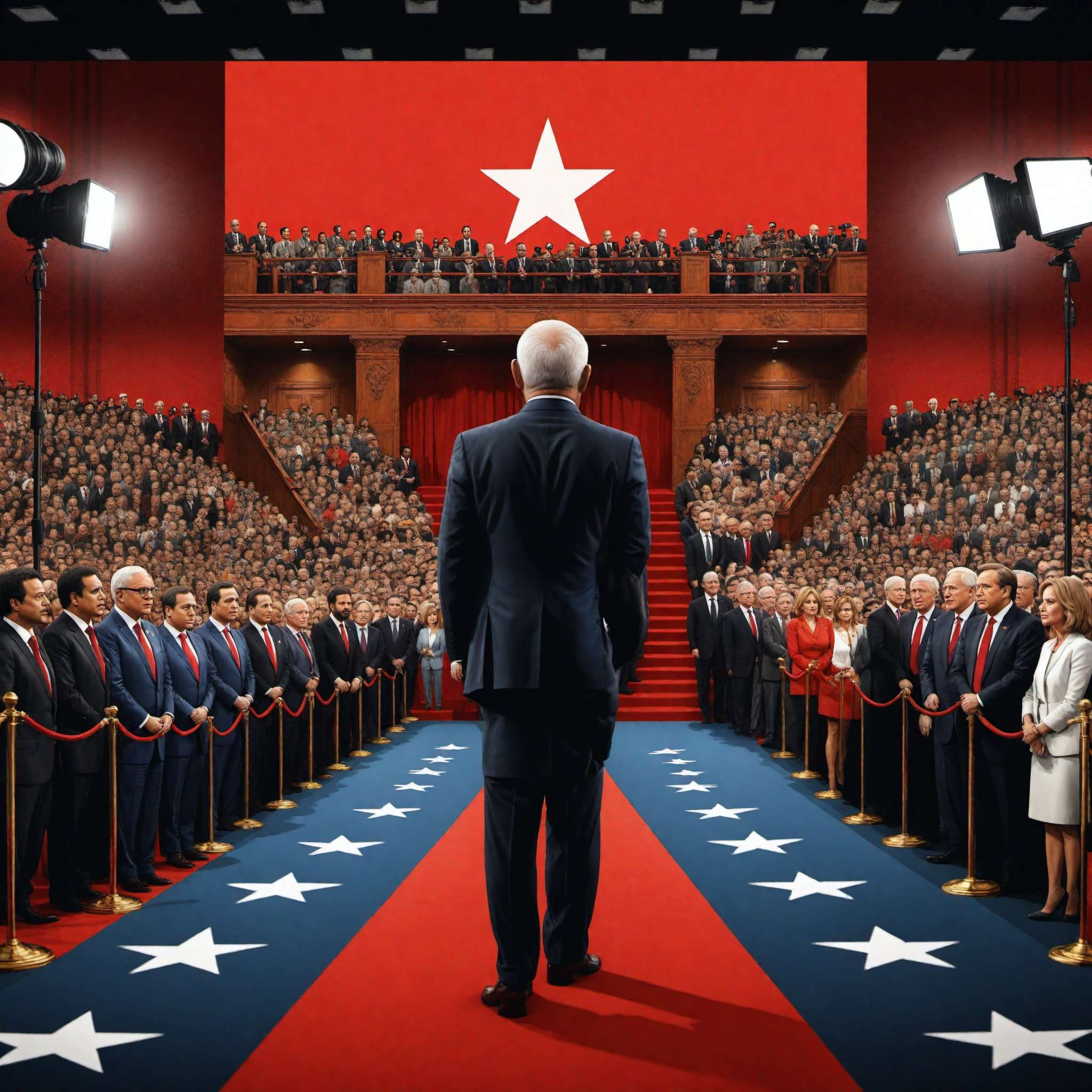
© Copyright , ZombieBunny.Org
Successful transitions from stardom to politics
There are numerous examples of celebrities who have successfully transitioned from stardom to politics, leveraging their fame and popularity to make a meaningful impact in the political arena. One of the most prominent examples is Ronald Reagan, a former Hollywood actor who served as the Governor of California before becoming the 40th President of the United States. Reagan’s charisma and communication skills, honed during his acting career, played a significant role in his political success.
Another example is Arnold Schwarzenegger, who transitioned from a successful acting career to serve as the Governor of California. Schwarzenegger used his celebrity status to draw attention to important policy issues, including environmental sustainability and fiscal responsibility. His tenure was marked by significant policy achievements and public service.
In India, several film and sports personalities have made successful transitions into politics. These include Jaya Bachchan, a renowned actress who serves as a Member of Parliament, and Rajyavardhan Singh Rathore, a former Olympic silver medalist who served as the Minister of Youth Affairs and Sports.
While these transitions have been successful, they also underscore the challenges and complexities of the Star-Politicos phenomenon. These celebrities had to navigate the intricacies of political governance and public service, often facing scrutiny for their lack of traditional political experience. Nonetheless, their successful transitions highlight the potential for celebrities to leverage their fame and influence for public service, contributing to a more dynamic and inclusive political landscape.
Factors contributing to successful transitions
Several factors contribute to successful transitions from stardom to politics. One key factor is the ability to leverage fame and popularity to attract public attention and support. Celebrities often have a wide audience and can use their platform to bring attention to important policy issues and mobilize support.
However, fame and popularity are not enough to ensure a successful transition. Celebrities also need to demonstrate a genuine interest and commitment to public service. This includes developing a deep understanding of policy issues, showing a willingness to listen to constituents, and making decisions in the public interest.
Another crucial factor is the ability to navigate the media and public scrutiny. Celebrities are used to being in the spotlight, but political scrutiny can be more intense and relentless. Successful transitions often involve managing this scrutiny effectively, maintaining transparency and accountability.
Furthermore, successful transitions require the ability to build coalitions and work collaboratively. Politics is not a solo endeavor; it involves working with various stakeholders to achieve policy goals. Celebrities who successfully transition into politics often demonstrate strong leadership skills, including the ability to build consensus and collaborate effectively.
As we delve into the Star-Politicos phenomenon, it’s crucial to consider these factors and how they contribute to successful transitions. Understanding these factors can provide valuable insights into the potential and challenges of the Star-Politicos phenomenon, contributing to a more nuanced understanding of the role of celebrities in politics.
Prominent examples of successful transitions
There are several prominent examples of celebrities who have successfully transitioned from stardom to politics. Ronald Reagan, a former Hollywood actor, served as the 40th President of the United States. His charisma, communication skills, and ability to connect with the public played a crucial role in his political success.
Another successful transition is Arnold Schwarzenegger, a former actor who served as the Governor of California. Schwarzenegger used his fame to draw attention to important policy issues and demonstrated a strong commitment to public service.
In the Philippines, Manny Pacquiao, an internationally renowned boxer, became a prominent political figure, serving as a senator. His popularity, coupled with his commitment to public service and his advocacy for the poor, contributed to his successful transition.
In India, several film and sports personalities have successfully transitioned into politics. These include Jaya Bachchan and Rajyavardhan Singh Rathore, who have served as Members of Parliament.
These examples highlight the potential for celebrities to leverage their fame and influence for public service. However, they also underscore the challenges and complexities of the Star-Politicos phenomenon. Successful transitions require more than just fame and popularity; they require a genuine commitment to public service, a deep understanding of policy issues, and the ability to navigate the intricacies of political governance. As we continue to explore the Star-Politicos phenomenon, these examples provide valuable insights into the potential and challenges of celebrity involvement in politics.
Political Celebrity: A Global Phenomenon
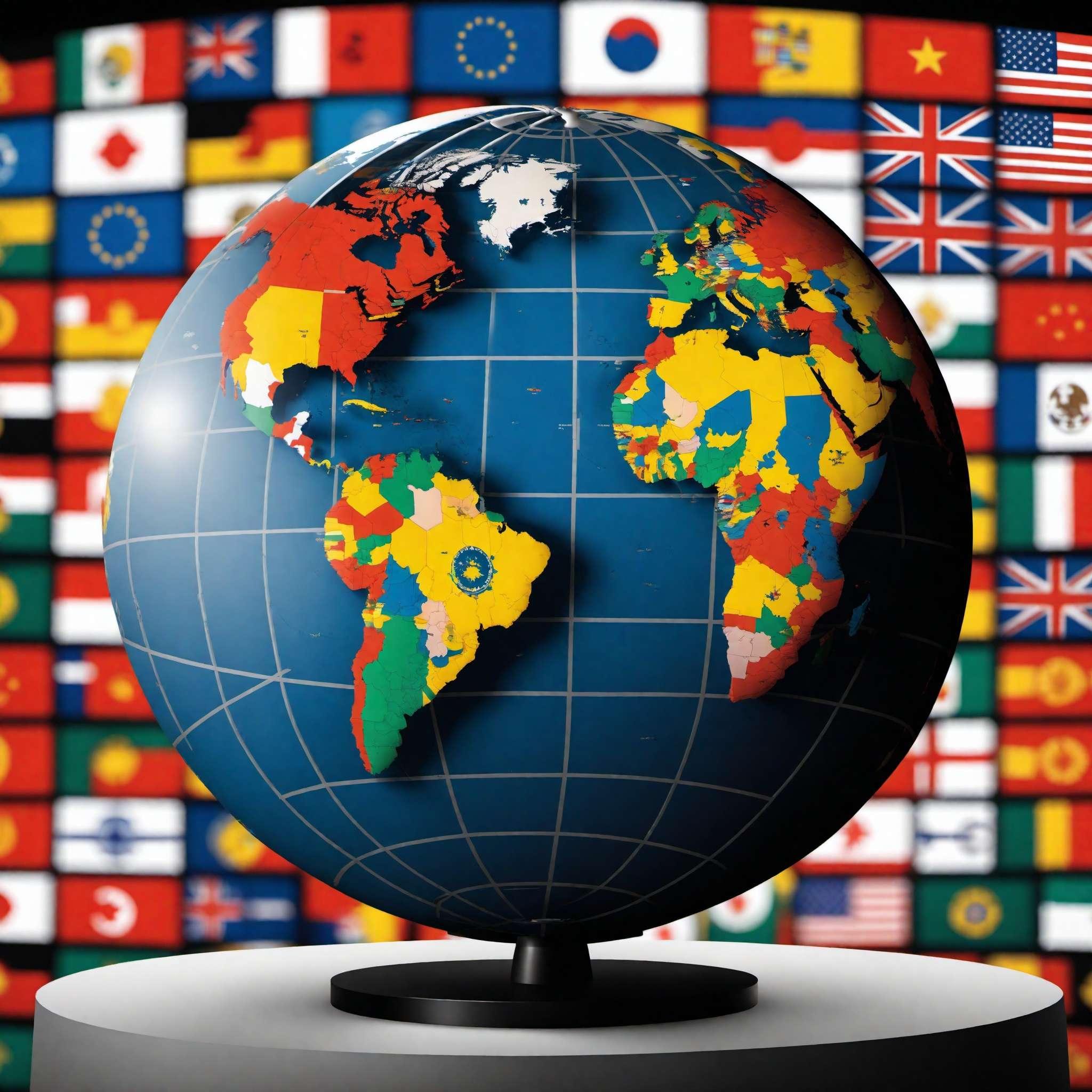
© Copyright , ZombieBunny.Org
Global trend of celebrity politics
The trend of celebrities entering politics is not confined to any one country or region; rather, it’s a global phenomenon. From the United States and Italy to India and the Philippines, celebrities from various fields are leveraging their fame and popularity to make a foray into politics. This global trend underscores the growing influence of celebrities in public life and their potential impact on political discourse and governance.
In the United States, the election of Donald Trump, a businessman and reality TV star, as President, and the success of Arnold Schwarzenegger as the Governor of California, underscore the potential influence of celebrities in politics. In Italy, media tycoon Silvio Berlusconi served as the Prime Minister, leveraging his celebrity status to gain political power.
In India, a country with a vibrant film industry, several actors and actresses have successfully transitioned into politics, serving in various capacities from local governance to parliament. Similarly, in the Philippines, celebrities from the entertainment and sports fields, including internationally renowned boxer Manny Pacquiao, have made successful political careers.
This global trend of celebrity politics raises important questions about the role of celebrities in politics and its implications for democratic governance. As we delve into the Star-Politicos phenomenon, it’s crucial to examine this trend in a global context, considering both its potential benefits and pitfalls. This blog will provide a comprehensive analysis of this global phenomenon, contributing to a nuanced understanding of the role of celebrities in politics.
Cultural impact of political celebrities
The rise of political celebrities has significant cultural implications. It reflects a broader trend of celebrity culture permeating various aspects of public life, including politics. This cultural shift is partly driven by the media, which plays a significant role in shaping perceptions and amplifying the voices of celebrities in the political discourse.
Celebrities bring a unique cultural influence to politics. They can use their storytelling skills and emotional appeal to present political issues in a compelling and relatable way. This can make politics more accessible and engaging for the public, fostering civic engagement and political participation.
Furthermore, celebrities can use their cultural influence to advocate for social and political causes, driving public attention and sparking discussions on important issues. Their activism can inspire their fans to get involved, fostering a sense of civic responsibility and social consciousness.
However, the cultural impact of political celebrities also raises critical questions. The focus on celebrity status and personality can overshadow the importance of policy issues and expertise, leading to a superficial and personality-driven political discourse. This can undermine the quality of political leadership and the public’s trust in political institutions.
As we delve into the Star-Politicos phenomenon, it’s crucial to critically examine its cultural impact, considering both its potential benefits and pitfalls. This blog will provide a comprehensive analysis of this aspect, contributing to a nuanced understanding of the role of celebrities in politics and its implications for our culture and society.
Notable international examples
The Star-Politicos phenomenon is a global trend, with notable examples from various parts of the world. In the United States, the successful political careers of Ronald Reagan, Arnold Schwarzenegger, and Donald Trump underscore the potential impact of celebrity politics. Reagan, a former Hollywood actor, served as the 40th President, while Schwarzenegger, another actor, served as the Governor of California. Trump, a businessman and reality TV star, was elected the 45th President.
In Italy, media tycoon Silvio Berlusconi leveraged his celebrity status to serve as the Prime Minister. Despite numerous ethical controversies, Berlusconi’s charisma and media savvy resonated with a significant portion of the electorate.
In the Philippines, Manny Pacquiao, an internationally renowned boxer, serves as a senator. His popularity, coupled with his advocacy for the poor, contributed to his successful political career.
In India, several actors and actresses have successfully transitioned into politics. These include Jaya Bachchan and Rajyavardhan Singh Rathore, who have served as Members of Parliament.
These international examples highlight the potential influence of celebrities in politics. However, they also underscore the challenges and complexities of the Star-Politicos phenomenon. As we continue to explore this global trend, it’s crucial to critically examine these examples and their implications for democratic governance and the integrity of the political process. This blog will provide a comprehensive analysis of these and other international examples, contributing to a deeper understanding of the role of celebrities in politics.
The Future of Celebrity Politics: A Forecast
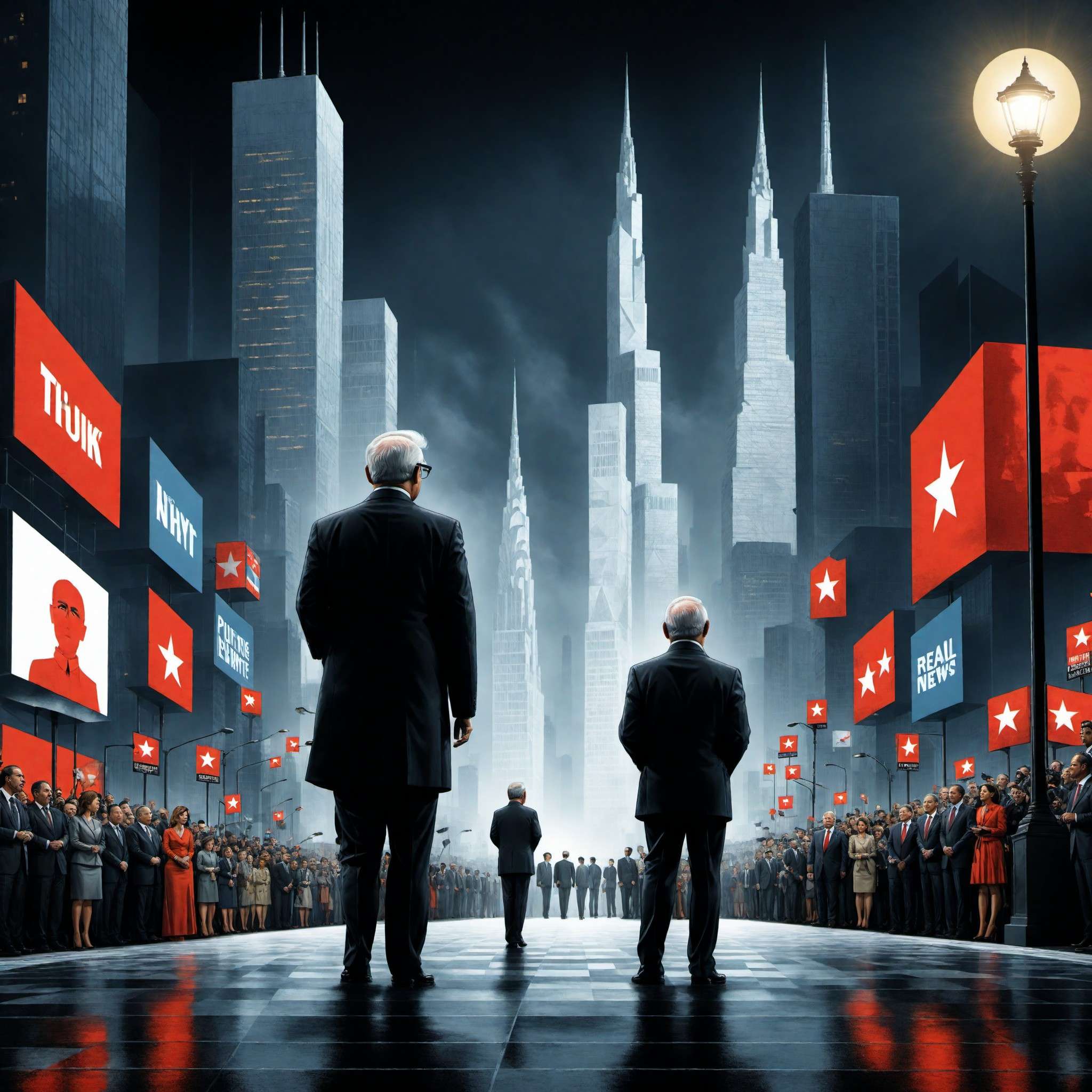
© Copyright , ZombieBunny.Org
Trends shaping the future of celebrity politics
Several trends are shaping the future of celebrity politics, reflecting the evolving dynamics of the Star-Politicos phenomenon. One key trend is the growing influence of social media, which is transforming how celebrities engage with the public and participate in political discourse. Celebrities can use social media to directly communicate with their fans, share their political views, and mobilize support. This trend is likely to continue, given the rising importance of digital communication in politics.
Another trend is the growing emphasis on personality and image in politics. As politics becomes more mediatised, the charisma, relatability, and media savvy of celebrities can play a significant role in shaping public opinion and voter behavior. This trend underscores the potential impact of the celebrity effect in swaying political outcomes.
Furthermore, there is a growing recognition of the potential for celebrities to advocate for social and political causes. Celebrities can use their platform to raise awareness about important issues, inspire civic engagement, and drive social change. This trend reflects the potential for celebrities to make a meaningful impact in the political arena.
However, these trends also present challenges. The emphasis on image and popularity can overshadow substantive policy debates, while the influence of celebrities can lead to uninformed voting decisions. As we look to the future of celebrity politics, it’s crucial to critically examine these trends, considering both their potential benefits and pitfalls. This blog will provide a comprehensive analysis of these trends, contributing to a nuanced understanding of the future of celebrity politics.
Potential impacts on democracy
The rise of celebrity politics has significant implications for democracy. On the one hand, celebrities can attract attention and spark interest in politics, potentially increasing civic engagement and political participation. They can make politics more accessible and relatable, encouraging citizens to get involved and exercise their democratic rights.
Moreover, celebrities can use their platform to advocate for social issues, raising public awareness and driving policy change. This can enrich democratic discourse, bringing new perspectives and voices into the political arena.
However, the influence of celebrities on politics also presents potential risks for democracy. The popularity and charisma of celebrities can sway public opinion, potentially leading to uninformed voting decisions based on popularity rather than policy. This can undermine the democratic principle of informed and independent decision-making.
Furthermore, the emphasis on celebrity status and image can overshadow substantive policy debates, leading to a more superficial and personality-driven political discourse. This can compromise the quality of political leadership and the public’s trust in political institutions.
As we look to the future of celebrity politics, it’s crucial to critically examine these potential impacts on democracy. This requires a nuanced understanding of the Star-Politicos phenomenon, considering both its potential benefits and pitfalls. As we navigate this evolving landscape, this blog will provide a comprehensive analysis of the potential impacts on democracy, contributing to a more informed and balanced discourse on celebrity politics.
Celebrity politics: A long-lasting phenomenon?
The question of whether celebrity politics is a fleeting trend or a long-lasting phenomenon is a subject of ongoing debate. The increasing prominence of celebrities in politics, coupled with the growing influence of media and celebrity culture in public life, suggests that the Star-Politicos phenomenon is not just a passing fad.
The ability of celebrities to command public attention, influence public opinion, and mobilize support makes them effective political figures in our media-saturated age. The rise of social media has further amplified the political potential of celebrities, providing them with a direct channel to communicate with the public and participate in political discourse.
However, the longevity of the Star-Politicos phenomenon also depends on how celebrities navigate the complexities of political governance and public service. Successful transitions require more than just fame and popularity; they require a genuine commitment to public service, a deep understanding of policy issues, and the ability to withstand public scrutiny.
Furthermore, the public’s perception of celebrity politics will also shape its future. If the emphasis on celebrity status and image overshadows substantive policy debates and compromises the quality of political leadership, public trust in celebrity politicians may wane.
As we look ahead, it’s crucial to continue to critically examine the Star-Politicos phenomenon, considering its potential impacts, challenges, and implications for democratic governance. This blog will provide a comprehensive analysis of this evolving phenomenon, contributing to a more nuanced understanding of the future of celebrity politics.
Conclusion: Star-Politicos A Ticking Time Bomb?
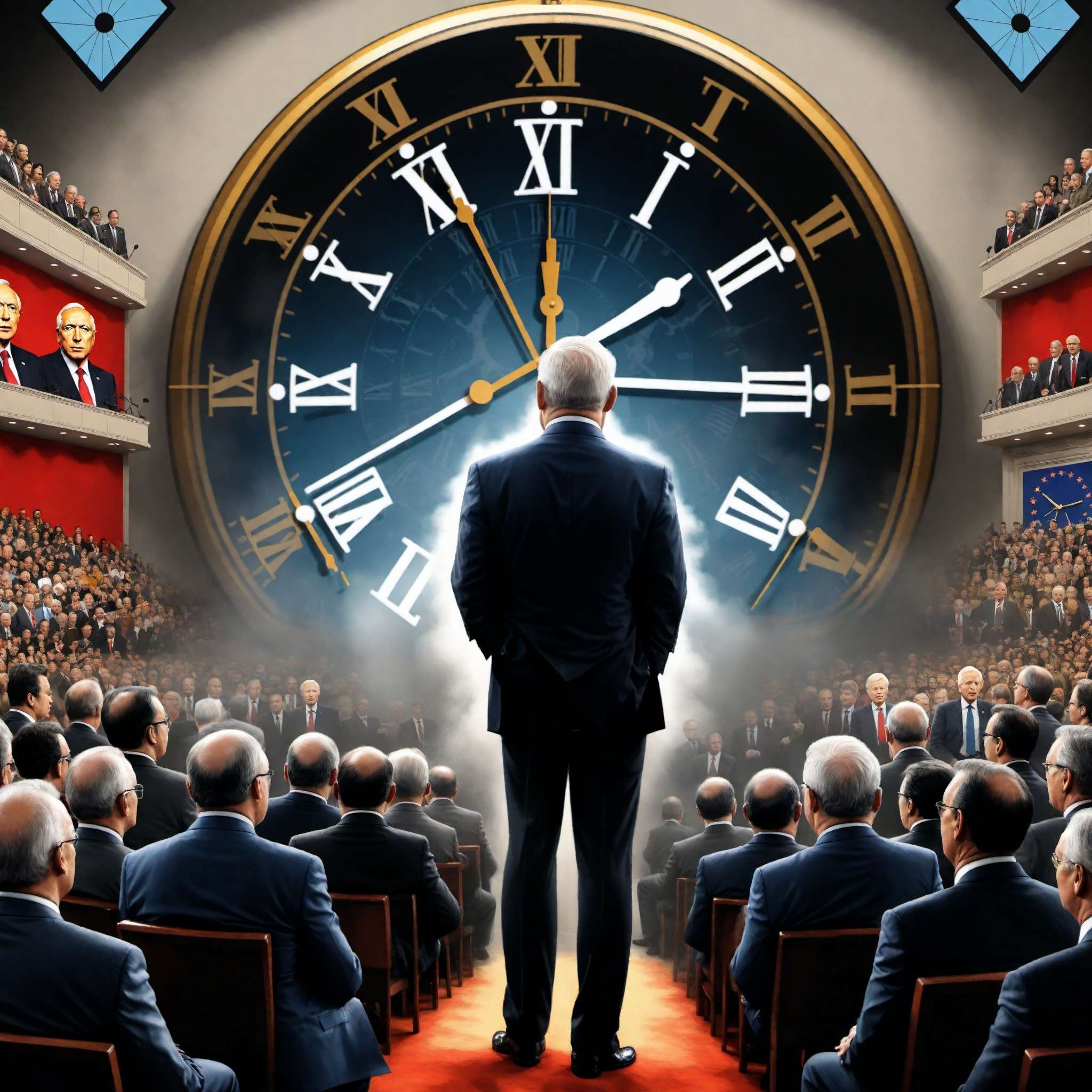
© Copyright , ZombieBunny.Org
Key takeaways
The Star-Politicos phenomenon, where celebrities transition into politics, is a global trend with significant implications for democracy. Celebrities can leverage their fame and popularity to attract public attention, spark interest in politics, and advocate for social issues. This can potentially enrich democratic discourse, increase civic engagement, and drive policy change.
However, the influence of celebrities in politics also presents potential risks. The popularity and charisma of celebrities can sway public opinion, potentially leading to uninformed voting decisions based on popularity rather than policy. Moreover, the emphasis on celebrity status and image can overshadow substantive policy debates, compromising the quality of political leadership and public trust in political institutions.
The future of the Star-Politicos phenomenon will likely be shaped by several factors, including the growing influence of social media, the continuing emphasis on personality and image in politics, and the public’s perception of celebrity politics.
As we navigate this evolving landscape, it’s crucial to critically examine the Star-Politicos phenomenon, considering its potential impacts, challenges, and implications for democratic governance. A nuanced understanding of this phenomenon can contribute to a more informed and balanced discourse on celebrity politics, fostering a robust and healthy democratic process.
Final thoughts on the future of celebrity politics
As we look to the future of celebrity politics, it’s clear that the Star-Politicos phenomenon is not just a fleeting trend. The increasing prominence of celebrities in politics, coupled with the growing influence of media and celebrity culture in public life, suggests that this phenomenon is here to stay. However, its longevity and impact will depend on how celebrities navigate the complexities of political governance and public service, and how the public perceives their role in politics.
While celebrities can leverage their fame and popularity to make a positive impact in the political arena, it’s crucial to ensure that this doesn’t lead to a superficial and personality-driven political discourse. The emphasis should be on substantive policy debates and informed decision-making, maintaining the integrity of the democratic process.
Furthermore, the role of media and social media in amplifying the voices of celebrities in politics underscores the need for responsible journalism and digital literacy. The media has a crucial role in providing balanced and accurate information, while the public needs to critically evaluate the information they consume.
Ultimately, the Star-Politicos phenomenon presents both opportunities and challenges. It’s a reflection of our evolving political landscape, driven by the interplay of celebrity culture, media, and politics. As we continue to navigate this landscape, it’s crucial to maintain a critical and informed perspective, ensuring that the Star-Politicos phenomenon contributes to a robust and healthy democracy.
Closing statement
As we wrap up this exploration of the Star-Politicos phenomenon, it’s clear that the intersection of celebrity and politics is a complex and multifaceted issue. It’s a global trend that reflects our evolving political landscape and the growing influence of media and celebrity culture. It presents unique opportunities for celebrities to leverage their fame and popularity to make a positive impact in politics, fostering civic engagement and driving policy change.
However, it’s equally clear that this trend also presents significant challenges. The popularity and charisma of celebrities can potentially lead to uninformed voting, while the focus on image can overshadow substantive policy debates. It’s crucial to balance the potential benefits of the Star-Politicos phenomenon with the need to uphold the principles of democracy, including informed decision-making and substantive policy debates.
As we navigate this evolving landscape, let’s continue to critically examine the role of celebrities in politics, considering its potential impacts, challenges, and implications for democratic governance. This will contribute to a more balanced and informed discourse on the Star-Politicos phenomenon, fostering a robust and healthy democratic process. So, is mixing celebrities and politics a ticking time bomb? The answer to this question will undoubtedly continue to evolve, reflecting the dynamic and complex interplay of celebrity culture, media, and politics.
Please support our site and purchase something from our store.

